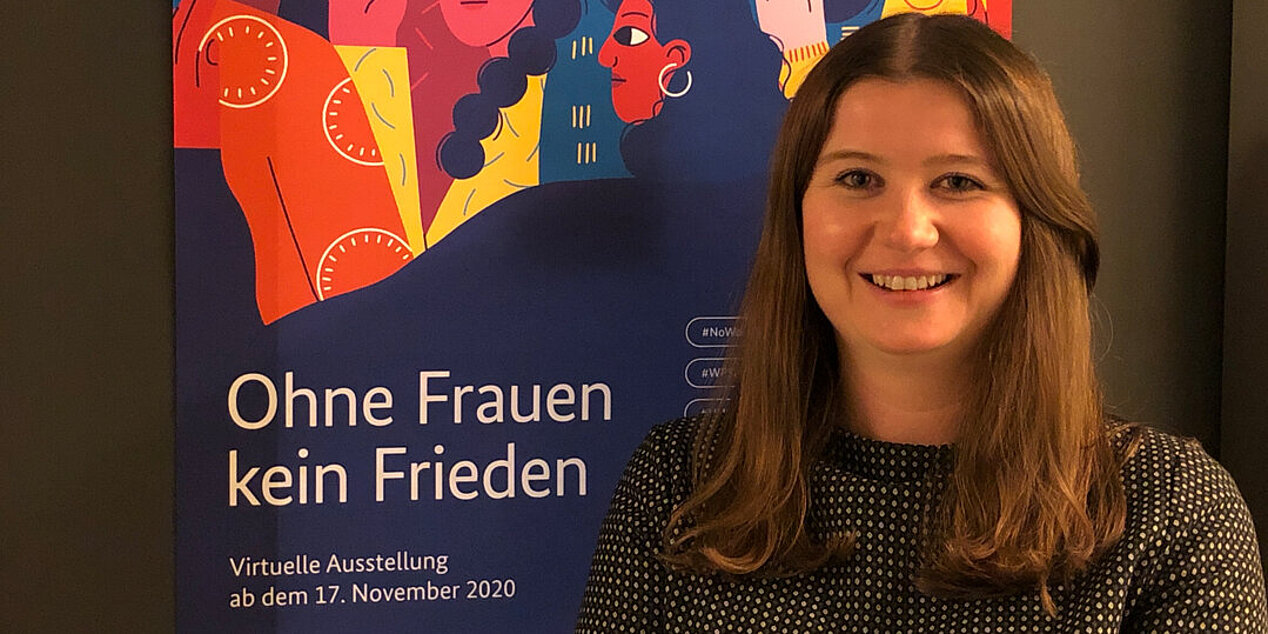ifa: Karolina, while in the Polish city of Opole between 2014 and 2015, you coordinated the work of the ifa delegates in Poland and the Czech Republic. Did you feel like you were working on your home turf? After all, you come from Poland.
Karolina Slusarenka: I had lived in Germany for several years before going to Poland for ifa, so yes, it was a kind of homecoming. Still, working with the German minority in Poland was new for me. The location was ideal for reflecting on the theme of identity, also because the question of identity arose for me personally while I was there. My relatives came from the Polish eastern territories, which became Ukrainian after WWII. Although my grandfather identified himself as Polish, my last name is actually Ukrainian.
Personal reflections on identity
ifa: ...a fitting analogy for all of the Pionteks and Kowalczyks in Poland who see themselves as German. That certainly brings about ideal reference points…
Slusarenka: Exactly, that's how I got the idea to start a project that dealt with the subject of identity. I organised a workshop entitled Identity Laboratory, and it wasn't just for the German minority. A Polish woman with very good German also took up the invitation. The workshop was about finding out how others see you and how you see yourself. It was fascinating because most people had never asked themselves, 'What makes me different?'
ifa: And how would you answer the question yourself, considering your experience with ifa?
Slusarenka: I think identity is dynamic. While studying Islamic Studies and Political Science, I volunteered in an association that was dedicated to anti-racism work. Even then, I became very involved with the topic of identity. And I realised that depending on the situation, identity can change.
Valuable experiences with project management
ifa: Today you work at the German Federal Foreign Office in Berlin and are quite active internationally. To what extent was your stay in Poland a good prerequisite for your present work?
Slusarenka: At ifa I developed my project management skills. I processed and approved project proposals. These are experiences that continue to support my work today. Plus, as Regional Coordinator, I learned a lot about leading a team. It was important to recognise the strengths of the ifa delegates and to utilise their potential. At one of the regular planning meetings at the German Embassy in Warsaw, I was encouraged to apply for a job at the Foreign Office. Without this encouragement, I might not have believed I was capable of the job.
Interview by Holger Lühmann
At Home in the World: 25 Years of the Deployment Programme
From Germany out into the world – feeling at home at your next destination. In the Department of Integration and Media within ifa's Deployment Programme, this is possible. For 25 years, ifa Stuttgart has been sending editors and cultural managers to German-speaking minority groups in Central and Eastern Europe. This anniversary year, we present three former participants and their work.
Further interviews from the series 'At Home in the World':
From Youth Culture to Viticulture
About the Deployment Programme
ifa's Deployment Programme offers organisations of German minorities support in tasks. Work stays in Central, Eastern and Southeastern Europe and/or in a state of the Commonwealth of Independent States last between one and five years. ifa cultural managers and editors work on selected projects at the selected organisations and support them with their know-how. The aim of the Deployment Programme is to convey a modern and vibrant image of Germany and to strengthen local organisations in their cultural bridging function between minority and majority.

